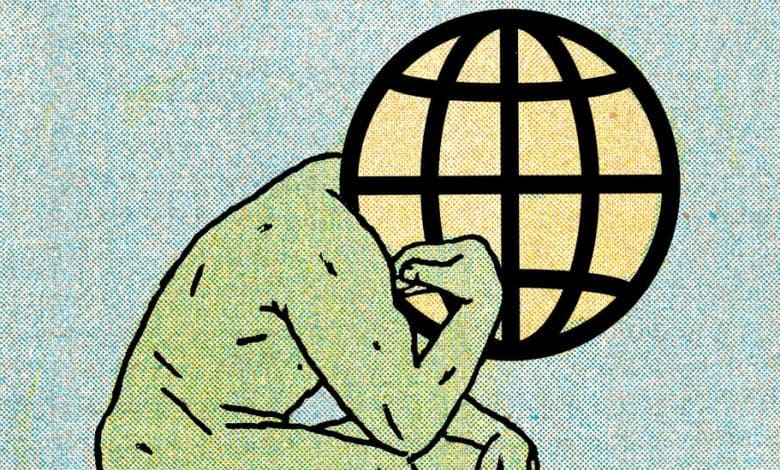Is the Internet the Enemy of Progress?

It’s unusual when you find a strong dose of pessimism about the future of technological progress highlighted by one of the world’s leading techno-optimists. But if you follow the combative venture capitalist Marc Andreessen on X, you would have seen him giving wide circulation to this passage from Michael Crichton’s 1995 “Jurassic Park” sequel “The Lost World,” in which Crichton’s ever-prescient Dr. Ian Malcolm warns that the internet will put an end to human progress:
This is the kind of quotation I would normally highlight at the end of this newsletter, in my “This Week in Decadence” feature. But it’s 29 years old, written when the true internet era was still just a gleam in Al Gore’s eye.
And as prophecies go, it’s pretty impressive — up there with Malcolm’s rather more famous prediction about just how bad things would get in John Hammond’s amusement park. The quote doesn’t capture everything about the current age (more on the prophecy’s limits in a moment), but it predicted quite a lot: the popular styles that seem stuck on repeat; the mid-list musicians and novelists disappearing amid the dominance of megastars; the dwindling interest in new music as the algorithm steers everyone to the Beatles; the “age of average” in everything from art and architecture to hotel décor, auto design and Instagram looks.
You could further argue that the passage predicted the Great Stagnation that Tyler Cowen identified in 2011, the productivity slowdown and disappointing economic growth that followed the initial 1990s-era internet boom. You could say that it predicted the remarkable ideological groupthink of the liberal Western leadership class over the same period, the rise of Davos Man and then the heightened elite conformism of the woke era. Finally, you could say that it predicted the striking phenomenon of birthrates declining globally, not just locally, in nearly every country and region touched by the iPhone version of modernity.
This last point is central to the updating of the Malcolm/Crichton thesis offered recently by the George Mason University professor Robin Hanson. Writing for Quillette, he argues that globalization and homogenization have reduced cultural competition in roughly the way that the “Lost World” passage describes. Instead of a bevy of cultural models competing the way private-sector firms do and dying off quickly if they don’t adapt successfully, globalization gives us a tendency toward “macro culture” — a few large-scale cultural models, or maybe eventually even just a global monoculture. This has initial benefits but long-term drawbacks:
This kind of maladaptive cultural drift, Hanson argues, is what’s happening with below-replacement fertility. For a variety of social and economic reasons, the developed world has converged on a reproductive model that’s already leading to rapid population aging and could lead — with South Korea as the blinking-red indicator light — to outright population collapse. This all but guarantees that technological and economic progress will slow down, but Hanson goes further and argues that depopulation may turn the world over to “insular cultures like Mennonites, Amish, and Haredim,” which by “doubling every two decades,” he writes, “look on track to replace our mainline civilization in a few centuries.”
For him, this is basically a fall-of-Rome scenario, with insular religious minorities playing the role of the early Christians and the rest of us cast in the role of the decadent Roman elites. And Hanson suggests that it’s extremely difficult for a culture that’s become universal but also maladaptive to escape this kind of fate, to get back to dynamism without first going through a crackup or collapse that yields more competition in the wreckage.
Now let’s consider the alternative to this kind of pessimism.When he posted the Ian Malcolm quotation, Andreessen did not endorse it; rather, he caveated it, saying that Crichton “was right about this. But also wrong. The internet is also the land of a million shards, cultures, cults.” Meaning that while there is a powerful tendency toward cultural homogenization and global uniformity, the online era also allows for more of Hanson’s within-culture innovation, if you know where to look for it: more conformism at the center, maybe, but more ferment at the fringe; more debilitating groupthink but also more eccentricity and radical experiments.
